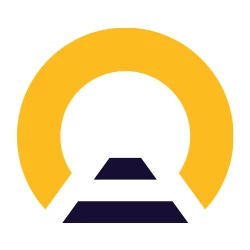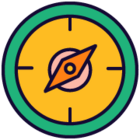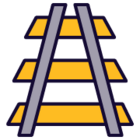
Bonjour à tous, Hello 
Last September, I took my first, solo, Interrail Pass trip. It was an amazing experience. I met so many people, spoke in a few languages and got to see places I had only dreamed of.
Trip stats
- 4500 km travelled (train and plane)
- 2 planes - outbound and inbound
- 15 trains
- Lots of buses and metros in a few different countries
- Rode an electric scooter many times
- Walked 200km on foot
- Carried a 10kg backpack
- Drank many, many litres of coffee
- Slept an average of 3 hours per day - went to bed late and woke up early, because I wanted to discover and explore as much as possible.
- Didn't have a plan
Which Interrail Pass?
I had a 5 day Global Pass and my trip lasted for 12 days in total.

Accommodation
I didn't have any accommodation booked in advance. Each day at 2-3 hours before sunset I would search for a bed in a hostel (on Hostelworld or Booking.com), then figure out how to get there by using the Rail Panner app. I was very flexible and usually took the last train of the day.
Laundry
I did laundry once, in a hostel. But in France you can do laundry anywhere, because there are laundry places in every town.
Reservations
I had 3 seat reservations, which I booked less than 12 hours in advance. All were in France and I always paid €10 via en.oui.sncf website. It is also possible to book reservations from the Rail Planner app. Learn more about reservations.

What to take with you?
Kasia took the following items with her on her Interrail Pass trip...
Must-haves
Clothing
- Comfortable shoes for all the walking
- Jeans and/or skirt - you can take one and style for many occasions, like sightseeing, partying and relaxing
- Comfy sweatshirt
- Waterproof jacket - I used it during wet and cold days in the Netherlands. Usually you can bring one good, warm, waterproof jacket to have less luggage
Assorted other items
- Earplugs - to have a good sleep
- E-reader - to read when on trains and save the space taken up by physical books
- A pen and notepad
- Powerbank - I charged it in trains and hostels. The Netherlands, Switzerland, Belgium and French TGV trains had power outlets. It was easy to charge my phone and Powerbank in trains.
- Revolut currency-exchange app and card - never had any issues when booking hostels, trains, paying at hostels, supermarkets, shops, train stations, restaurants. Never had any commission when withdrawing, which I did twice. (You can also try TransferWise or Monzo.)
- Cash - in some places cards were not accepted. (This was mostly the case in Berlin, Germany.)
- Steel water bottle - I took a Ragsy bottle to keep water cold or tea warm. I filled it everywhere. No need to buy plastic water bottles.
- Medicine - it's always good to have some with you. I took some painkillers, but used them only once.
Apps
Rail Planner, Omio, SNCF (French railways), Polarsteps, Hostelworld, Booking.com, Sudoku to play in metro, Uber, Lime, RATP (for Paris transport), Maps.me, Revolut
What I didn't need
Food
I took some pasta, tea and oatmeals with me. But don't take any food, because shops are everywhere. You can buy food there and prepare for lunch or breakfast. If there's a kitchen in the hostel, they usually also have tea or ground coffee.
I sometimes ate the breakfast offered at hostels. It was usually around €5-9, with plenty of choices. I then wasn't hungry until dinner.





